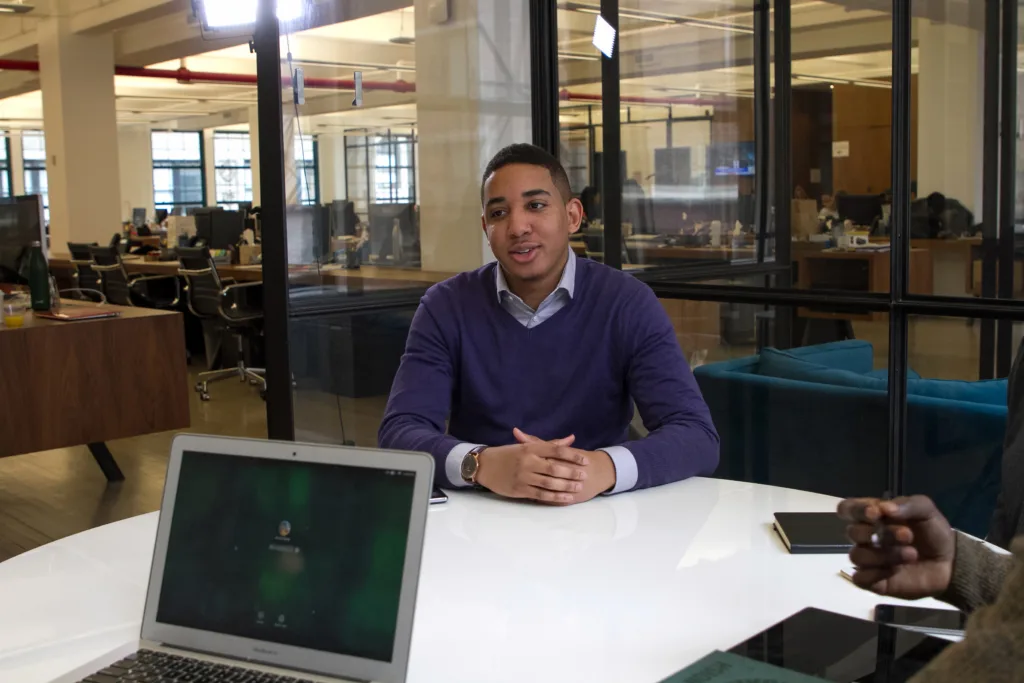When it comes to job hunting, one of the most nerve-wracking parts is waiting to hear back from potential employers. You’ve spent countless hours crafting your resume and cover letter, preparing for the interview, and putting your best foot forward. However, even with all this effort, rejection is still a possibility. But the question remains, do companies actually call to reject you?
The short answer is, it depends. Depending on the company’s hiring process and the number of candidates they’ve interviewed, they may or may not call to reject you. In some cases, companies will send an email or even a generic rejection letter. However, in other cases, you may receive a personal phone call, especially if you were a top candidate.
It’s important to keep in mind that receiving a rejection call is not a reflection of your qualifications or your potential as an employee. It simply means that the company chose to move forward with another candidate for the position. It’s also important to remember that hiring managers are busy people, and they may not have the time to call eery candidate they interviewed. In fact, many companies use automated systems to send out rejection emails to all applicants who were not selected.
That being said, if you do receive a rejection call, it’s important to handle the situation with grace and professionalism. Thank the interviewer for their time and consideration, and ask if they have any feedback or constructive criticism that can help you improve your job search in the future. This not only shows that you’re gracious in defeat, but it also leaves a positive impression with the company, which could lead to future job opportunities.
On the other hand, if you don’t hear back from a company after a certain amount of time, it’s okay to follow up with a polite email or phone call to inquire about the status of your application. This shows that you’re proactive and interested in the position, which is always a good thing.
Every company has their own hiring process, and whether or not they call to reject you may vary. While it may be disappointing to receive a rejection call, it’s important to remember that it’s not a reflection of your worth as an employee. Rather, it’s an opportunity to learn and grow from the experience, and to continue your job search with optimism and professionalism.
Receiving a Rejection Call from a Company
It is common for companies to use both phone and email to communicate the outcome of a job application. However, the method of communication can vary based on the company’s policies and the stage of the hiring process. In some cases, companies may choose to call a candidate to inform them that they have not been selected for the role. This approach can provide a more personal touch and allw the candidate to ask any questions they may have about the decision.
That being said, it is important to note that the majority of companies now use email to communicate rejections due to its efficiency and ease of use. While email may not be as personal as a phone call, it allows the company to communicate with a large number of candidates in a timely manner. However, it is worth noting that receiving a phone call can be seen as a more respectful and considerate approach by candidates, as it shows that the company values their time and effort in the application process. Ultimately, the method of communication used to reject a candidate can vary, but it is important for companies to do so in a professional and respectful manner.

Do Company Recruiters Call to Reject Candidates?
Yes, company recruiters do call to reject candidates. While it may not be the most pleasant experience for the candidate, it is important for the recruiter to provide closure and feedback to all applicants. The rejection call is typically made by the recruiter assigned to the candidate’s application or interview process. During the call, the recruiter will inform the candidate that they were not selected for the position and provide any necessay feedback on why they were not chosen. This feedback can be valuable for the candidate to improve their skills or interview performance for future job opportunities. It is important for the recruiter to deliver the news in a professional and respectful manner, as it can be a difficult experience for the candidate. The rejection call also allows the candidate to move forward in their job search and pursue other opportunities.
Do Employers Contact Applicants Who Are Not Selected for the Job?
It’s important to note that not all employers will call to notify you if you didn’t get the job. While some companies have a policy of notifying all candidates, others may not have the time or resources to do so.
However, it’s always a good idea to follow up after an interview or application to express your appreciation for the opportunity and to inquire about the status of your application. This can also give you an opportunity to ask for feedback on your performance and areas for improvement.
If you don’t hear back from an employer after following up, it’s important to not take it personally and to continue your job search. Remember that there could be a variety of reasons why you weren’t selected for the position, and it’s important to keep a positive attitude and persevere in your job search.
Do Companies Call to Offer Job Acceptance?
Yes, companies may call you to accept a job offer. When a company decides to hire you, they will typically reach out to you via phone call or voicemail if they are unable to reach you directly. The purpose of the call is to offer you the job and provide you with the necessary details rgarding your employment contract, such as your start date, salary, and benefits package. During this call, it’s important to listen carefully, ask questions if necessary, and express your appreciation for the opportunity. Remember that this is a significant moment in your career, and making a positive impression during this call can set the tone for your future interactions with your employer. It’s important to be professional, courteous, and enthusiastic, as you want to make a great impression every step of the way.
Notification of Job Rejection
Yes, employers are required by law to notify applicants if they have been rejected based on any information secured through background screening and employment tests. This notification can be done through various means such as email, phone call, or postal mail. However, if an applicant is rejected for other reasons, such as lack of experience, the employer may not be required to provide a notification. In such cases, it is always a good idea for applicants to follow up with the employer to inquire abut their application status and to ask for feedback on how they can improve their chances in the future.

The Sound of a Rejected Call
When you call someone and they decline your call, you will typically hear a few different sounds depending on your phone and service provider. Generally, you will hear a short ring followed by a busy signal or a message stating that the call could not be completed. Some phones may also play a specific tone or message to indicate that the call was declined. In some cases, the call may simply go to voicemail without any indication that it was declined. If you are unsure whether your call was rejected, pay attention to how many times the phone rings before going to voicemail. If it only rings once or twce before going to voicemail, it is likely that the call was declined manually.
The Possibility of Job Callbacks After Rejection
Yes, it is possible for jobs to call back after a rejection. There are several reasons why this may happen. Firstly, a company may have multiple positions available and may considr a candidate for a different role if they were not selected for the original position. Additionally, a company’s hiring process may involve multiple rounds of interviews and assessments, and a candidate who was initially rejected may be reconsidered for a later stage of the process. Finally, if the first-choice candidate does not pass the employment verification process or decides not to accept the offer, a company may reach out to a previously rejected candidate. However, it is important to note that this is not a guarantee and candidates should continue to actively apply and interview for other positions.
Signs That You Will Be Hired After an Interview
When you attend a job interview, you may feel anxious and uncertain about the outcome. However, there are some indicators that suggest you have a good chance of being hired. Here are some signs to look out for:
1. They discuss the next steps: If the interviewer talks about the next steps in the hiring process, it is a good sign that they are considering you for the position.
2. They ask when you can start: If the interviewer wants to know when you can start working, it means that they are interested in hiring you.
3. Their body language is positive: If the interviewer maintains eye contact, smiles, and leans twards you, it shows that they are engaged and interested in what you have to say.
4. They contact your references: If the employer contacts your references, it means that they are seriously considering you for the job.
5. You meet the team: If you are introduced to other team members during the interview, it is a sign that the employer is considering you as a potential member of the team.
6. You discuss perks and benefits: If the employer discusses the company’s perks and benefits, it indicates that they are interested in hiring you and want to make sure you are aware of what the company has to offer.
7. You receive a positive follow-up response: If the employer follows up with you after the interview and gives you positive feedback, it is a good sign that they are considering you for the position.
8. You’re invited to connect on LinkedIn: If the interviewer invites you to connect on LinkedIn, it indicates that they want to keep in touch with you and are interested in your professional development.
In summary, these are some of the signs that suggest you have a good chance of being hired after an interview. However, it is important to keep in mind that there are no guarantees and that the final decision is up to the employer.
Do Recruiters Call or Email to Offer a Job?
Recruiters may use various methods to offer a job to a candidate, but phone calls and emails are the two most common methods. Some recruiters prefer to make a job offer over the phone as it allows for a more personal touch and the opportunity to answer any questions the candidate may have on the spot. Additionally, phone calls allow for a more immeiate response and can provide the candidate with a sense of excitement and enthusiasm about the job offer.
On the other hand, some recruiters may prefer to send a job offer via email as it allows for a written record of the offer and can be easily forwarded to the candidate for reference. Email also provides the candidate with the opportunity to carefully review the offer and ask any questions before accepting the job.
Ultimately, the method of communication will depend on the recruiter’s preference and the company’s policies. Therefore, it’s important to keep an eye on both your phone and email during the job application process and be prepared to receive a job offer through either channel.

Signs That You Did Not Get the Job
There are several signs that may indicate you didn’t get the job you applied for. One of the most obvious signs is if the interview was cut short, which could suggest that the interviewer didn’t find you to be a good fit for the position. Additionally, if you don’t hear back from the employer after a job interview, it could be an indication that they have decided to pursue other candidates.
Another sign that you may not have goten the job is if the interviewer repeatedly cut your responses short. This may suggest that they were not interested in hearing more about your qualifications or experience. Furthermore, if the interviewer did not share details about the job’s duties or its salary, it could be a sign that they were not seriously considering you for the position.
It’s essential to note that while these signs may indicate that you didn’t get the job, they are not always definitive. It’s always best to follow up with the employer after the interview and inquire about the status of your application. This will provide you with a better understanding of where you stand and may help you improve your chances of landing the job in the future.
Determining If You Will Get the Job
There are several signs that can indicate whether or not you will get the job after an interview. Firstly, if the conversation turns casual and the interviewer sees relaxed, this could be a good sign. Additionally, if the interview runs long, it could be an indication that the interviewer is interested in your qualifications and experience.
Another positive sign is if the interviewer shows positive nonverbal actions such as nodding, smiling, or leaning in. If they introduce you to other team members, this could suggest they are considering you as a potential colleague.
If the interviewer indicates that they are impressed with your responses or ask follow-up questions about your experience or skills, this is also a good sign. When the interviewer discusses the company’s perks or benefits, it could suggest that they are considering you as a candidate for the position.
Finally, if the interviewer asks about your availability or when you can start, this could be a strong indicator of their interest in hiring you. Of course, it’s important to remember that even if you don’t see these signs, it doesn’t necessarily mean you won’t get the job. It’s always best to remain positive and follow up with the interviewer after the interview to express your continued interest.
Determining If You Will Get Hired
It can be difficult to know for certain if you will get hired for a job, as the decision ultimately rests with the hiring manager or company. However, there are some signs that may indicate you have a good chance of being offered the position.
Firstly, if you are asked to submit to an additional round of interviews, it could mean that the company is seriously cosidering you as a candidate. This may involve meeting with different members of the team or undergoing a skills assessment.
Another positive sign is if the hiring manager tries to “sell” you on the company, highlighting the benefits and opportunities for growth within the organization. This shows that they are invested in your potential as an employee and are interested in having you join their team.
Additionally, if the interviewer asks you a lot of personal questions about your family, personal goals, and hobbies, it could indicate that they are trying to get to know you on a more personal level to assess how well you may fit into the company culture.
Lastly, if the interviewer nods and smiles a lot during the interview, it may suggest that they are impressed with your responses and are envisioning you in the role.
While these signs do not guarantee that you will get hired, they can be indications that you are a strong candidate and may increase your chances of receiving an offer.
Confirmation of Employment by Companies
Yes, companies often call to confirm employment of their potential hires. This is because employers want to ensure that the information provided by the candidate in their resume or job application is true and accurate. Some employers may reach out directly to your current or previous employers to request official verification, usually via phone or email. Alternatively, employers may use professional background screening firms and employment verification services like The Work Number® from Equifax to confirm your employment history. These services typically provide a detailed report to the employer, whch includes your job title, dates of employment, salary, and other relevant details. It’s important to note that employers must obtain your consent before conducting a background check or employment verification, and you have the right to review and dispute any inaccuracies in the report.

Responding to a Job Rejection Call
When you receive a job rejection call, it’s important to remain professional and handle the situation gracefully. First and foremost, thank the hiring manager or recruiter for teir time and consideration of your application. Express your disappointment in not being chosen for the position, but avoid becoming defensive or argumentative.
If you feel comfortable doing so, politely request feedback on your performance in the interview process. This can provide valuable insight into areas where you can improve and help you stand out from other job applicants in the future.
Additionally, it’s always a good idea to encourage the hiring manager or recruiter to keep you in consideration for future opportunities that may arise. This shows that you are still interested in working for the company and are willing to pursue other positions that may be a better fit for your skills and experience.
Remember to remain positive and professional throughout the call, as this can leave a lasting impression on the hiring manager or recruiter and potentially open doors for future opportunities.
Conclusion
In conclusion, companies play an essential role in shaping our economy and providing employment opportunities for millions of people around the world. From startups to multinational corporations, companies operate in a wide range of industries, each with its unique challenges and opportunities. Despite the challenges of competition, market fluctuations, and changing consumer preferences, successful companies are those that can adapt and innovate to meet the demands of their customers while also maintaining profitability. Whether you’re a job seeker, investor, or consumer, understanding the dynamics of companies is crucial to making informed decisions and navigating the complex world of business. By staying informed abot industry trends, company performance, and leadership strategies, you can gain a deeper appreciation for the role that companies play in our lives and the broader economy.
